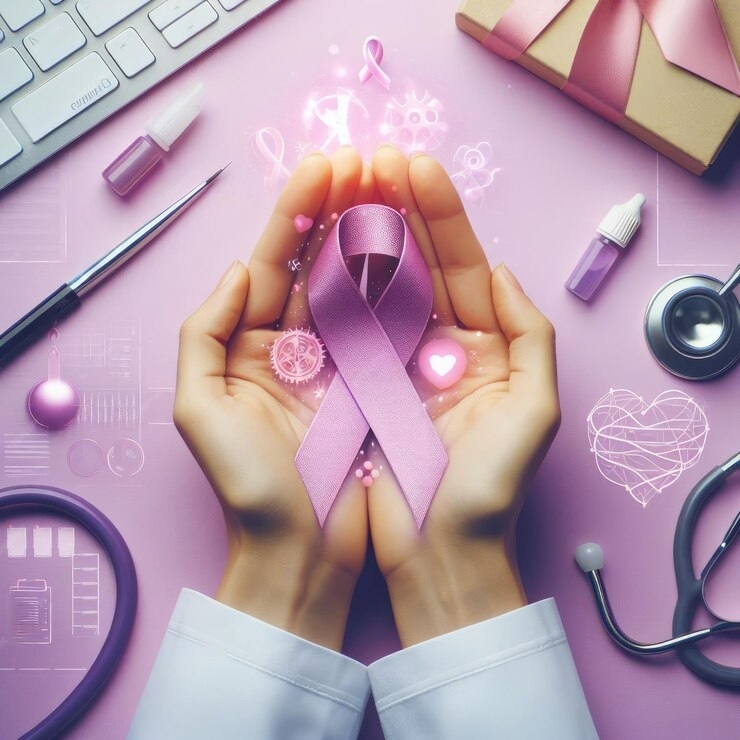Anal Fissure Treatment
A mastectomy is a surgical procedure aimed at removing all breast tissue from one or both breasts as a treatment for or prevention of breast cancer. In cases of early-stage breast cancer, a mastectomy may be recommended as one treatment option. Alternatively, breast-conserving surgery, such as a lumpectomy, where only the tumor is removed while preserving the rest of the breast, may be considered.
Modern mastectomy techniques, including skin-sparing mastectomy, aim to preserve the breast skin and achieve a more natural breast appearance post-procedure. Additionally, breast reconstruction surgery can be performed either simultaneously with the mastectomy or as a separate procedure at a later time to restore the shape of the breast.

Symptoms
Signs and symptoms of breast cancer may include:
- New lump inside the breast or underarm (armpit).
- Redness or flaky skin inside the nipple area or the breast.
- Inflammation or dimpling of breast skin.
- Pulling in of the nipple or pain in the nipple area.
- Thickening or swelling of a part of the breast.
It’s essential to note that these symptoms can also be indicative of other conditions, and not all breast lumps are cancerous. However, if you notice any of these changes, it’s crucial to consult a healthcare professional for evaluation and appropriate management. Early detection and treatment can significantly improve outcomes in breast cancer cases.
When to access Medical Care
While mastectomy may be recommended for some patients with breast cancer, it’s essential to understand that treatment decisions are based on various factors, including the stage of cancer, tumor characteristics, overall health, and patient preferences. Mastectomy is not the only option for all individuals with breast cancer, and breast-conserving treatments, such as lumpectomy followed by radiation therapy, may be suitable for many patients, depending on their specific circumstances.
Determinants of risk
Factors associated with an increased risk of breast cancer include:
Gender: Women are more likely than men to develop breast cancer.
Aging: The risk of breast cancer increases as individuals age.
Personal history of breast conditions: Previous breast biopsies revealing lobular carcinoma in situ (LCIS) or atypical hyperplasia of the breast may elevate the risk of breast cancer.
Personal history of breast cancer: Individuals with a history of breast cancer in one breast have an increased risk of developing cancer in the other breast.
Family history of breast cancer: Having a mother, sister, or daughter diagnosed with breast cancer, especially at a younger age, raises the risk. However, most people diagnosed with breast cancer do not have a family history of the disease.
Inherited genetic mutations: Certain genes, such as BRCA1 and BRCA2, increase the risk of breast cancer.
Hormone therapy: Postmenopausal hormone therapy, particularly estrogen-progestin combination therapy, may increase the risk of breast cancer.
Menstrual and reproductive history: Factors such as starting menstruation at a younger age or experiencing menopause at an older age may affect breast cancer risk.
Recovery process
Recovery duration varies, contingent on factors like patient characteristics, chosen procedure, and the extent of severity.
Why entrust your care to us?
At Steps 2 Cure, our foundation of trust is built upon several key pillars that ensure your confidence in our services and expertise. Our team comprises highly qualified professionals with extensive experience in their respective fields. Their knowledge and skills enable us to offer you the best possible care and solutions for your medical needs. We understand that each individual is unique, and so are their healthcare requirements.
That’s why we prioritize tailoring our treatments and approaches to your specific circumstances, ensuring that you receive care that is truly designed for you. You are at the heart of everything we do. Your comfort, concerns, and aspirations guide our efforts. Our compassionate approach ensures that you feel valued and supported throughout your healthcare experience.
To commence the treatment procedure, you can start by forwarding your questions via WhatsApp at (+91 9999652964) or by sending an email to care@steps2cure.com. Our team will ensure a swift response to your queries.
Abdominoplasty
Still have a Query?
Your health and peace of mind matter to us, and we’re dedicated to addressing any inquiries you may have with care and expertise. Feel free to reach out.
